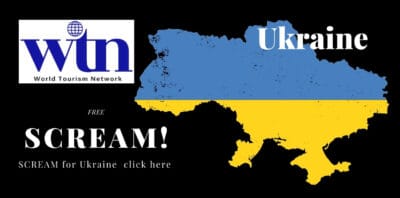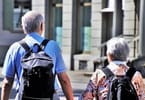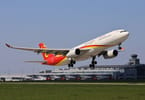It’s a month ago since Ukraine has ceased to be really ‘living’ – their way. But the country still exists, and far more: Ukraine is alive, although Ukrainians are facing the tremors of bombardments, the gradual strangling and destruction of towns and cities by the invading armies, and the continuous devastation of country sides. Ukrainians, overwhelmed with fear and sufferings, do convulse the world now with their bravery, endurance, and vibrancy. Ukrainians are showing the aggressor – and the world – how to put freedom, democracy, respect in a nutshell. Are we learning the lecture – both in Russia and in the West?
The horror of Putin’s war in Ukraine shows the alarming outlines of a ‘proxy war’ between ‘the West’ and Russia. Yet this war, too, has its history, revealing both Putin’s incalculable aggressiveness and Europe’s failure since the early 1990s, to convince a then chaos-affected Russia — and her largely disillusioned citizens — that this huge country is geographically, culturally and in terms of 85 per cent of its population an essential part of Europe, as also, undoubtedly, embattled Ukraine is.
The outcome now could hardly be worse, as we witness Ukrainian cities reduced to rubble, desperate women fleeing their homeplaces with their children, and leaving husbands behind to fight the invaders.
“No, I lived not under foreign skies,
Sheltering under foreign wings:
I then stayed with my people,
There where my people, unhappily, were.”
Steadfast poet Anna Akhmatova, born in 1889 near Odessa, wrote these lines. They could well fit to conditions in today’s Kiev, but the poem refers to the beleaguered city of Leningrad during World War II. Ilya Ehrenburg, born in Kiev, who spent many years in Paris, yet in 1945, after the Nazi brutality had been brought to an end, thought that “long ago Russia had become part of Europe, the bearers of her tradition, the continuators of her boldness, her builders and her poets” (from Harrison E. Salisbury, “The 900 Days — The Siege of Leningrad”, 1969).
For decades after the Second World War we have dreamed that peace would prevail in Europe, and any Russian government, remembering Leningrad, Stalingrad or Kursk, and the sufferings people had to endure under the Nazi-German occupiers, would refrain from waging war again.
Our dream has metamorphosed into a nightmare that came true.
It’s the brutal reality to see Russia and Ukraine, two sister nations as they are, at war today! Retro-imperialists seem to have missed timely wake-up calls that resounded from earlier wars in ex-Yugoslavia, the Middle East and Afghanistan, just to name a few. Moreover, they seem to have forgotten about their inglorious role they played.
Ukraine was repeatedly related with horror stories, yet is this a consolation? Taras Shevchenko, the country’s 19th-century national poet, writes: “My beautiful country, so rich and resplendent! Who has not tormented you?” (from Bart McDowell and Dean Conger, Journey Across Russia, National Geographic Society, 1977). Resplendent farmland that has made Ukraine Russia’s breadbasket has always been a good reason to go to war, and the Russian civil war from 1918 to 1921 was particularly hard for Ukraine. However, the country’s rich culture and the capital’s unbeatable proposition of the ‘Kiev Rus’ as the ‘cradle of Russia’ has made Ukraine vulnerable to an aggressor who since the break-up of the Soviet Union has been suffering from a seemingly unbearable phantom pain, caused by an unfair history. Admittedly, hard-felt phantom pain is a reason to see the doctor, but not to attack and kill one’s neighbor.
Now, Ukraine is obviously the scapegoat for the dead end that appeasing Western politicians and a megalomanic Russian President including his entourage are trapped in. It is too sad to reflect over a fatal amalgam of Western political laissez-faire, hypocrisy and outright stupidity, and a vengeful attitude of megalomania in Moscow’s Kremlin. This has caused Ukraine to being awfully hit foremost, albeit Russia herself will be terribly affected, and all of us will have to pay for it. Strange to see the repeated failures of great powers to get united in solving the multi-dimensional challenges of an allegedly civilized 21st century, with all the once positive options of a benevolent destiny, following the fall of the Wall, with the subsequent opportunities on a global scale.
In 2011, I was working in a team of Ukrainians and other Europeans in Charkiv and Donetsk, in order to help coordinate local Tourism activities with the preparations for the European Soccer Championship 2012, held in Ukraine and Poland. The photo I took shows a Charkiv girl, during the colorful parade on the occasion of the beginning of the new school year on September 1, a joyful instant in peacetime. It cannot contrast more sharply with war-time horrors Ukrainians are going through now, especially the children.
What can Tourism do?
An industry that has been created to making people relaxed and happy, and which stands like no one else for the splendors of ‘sun and fun’, is trying harder to do more than to express its sincere empathy to Ukrainians: There is hands-on help provided by Skal International, and there are many examples of generous support given by Tourism organizations, private tour operators, transport companies and accommodation providers. Initiatives as such may well be outlined as milestones of humanness. Most encouraging however, is the continuous steadiness of the Ukrainian Tourism officials, sending appeals to the world not to be left behind forgotten, and spreading indefatigably their message of Ukraine as a gorgeous European Tourism destination – for post-war times, as peace will have returned.
There is a basic approach that holds both in good and bad times: In an effort to create and maintain peace, it is up to all of us to remain alert yet never get tired of showing our ‘goodwill’: in a winning spirit, with an open heart, clear words and a smiling face reflecting our living ‘soul.’ It provides the little extra spice to everyday-life and may help a lot. After all, goodwill may make good deeds well done, which again bears the spirit of “that kind of peace the world cannot give” (John 14:27). It looks as if exactly this message is prone to create resilience, hope and confidence – especially in view of the tragedy in Ukraine.
The SCREAM.travel campaign by the World Tourism Network is bringing initiatives by the travel and tourism industry together to assist Ukraine.
For more information on how to become a part of this group, click here.

WHAT TO TAKE AWAY FROM THIS ARTICLE:
- Strange to see the repeated failures of great powers to get united in solving the multi-dimensional challenges of an allegedly civilized 21st century, with all the once positive options of a benevolent destiny, following the fall of the Wall, with the subsequent opportunities on a global scale.
- Ilya Ehrenburg, born in Kiev, who spent many years in Paris, yet in 1945, after the Nazi brutality had been brought to an end, thought that “long ago Russia had become part of Europe, the bearers of her tradition, the continuators of her boldness, her builders and her poets”.
- For decades after the Second World War we have dreamed that peace would prevail in Europe, and any Russian government, remembering Leningrad, Stalingrad or Kursk, and the sufferings people had to endure under the Nazi-German occupiers, would refrain from waging war again.






















